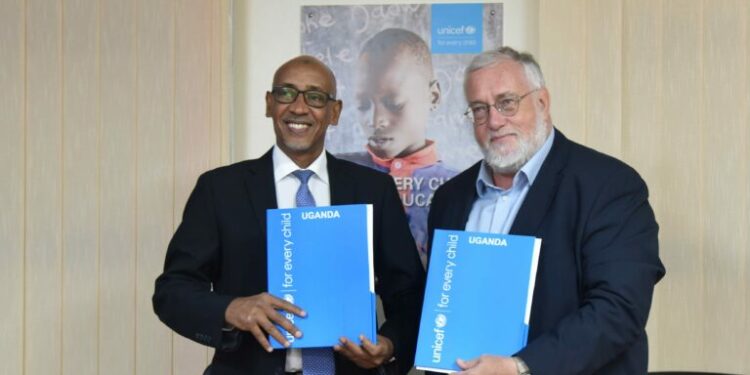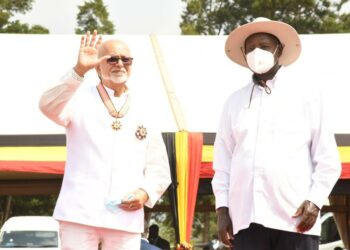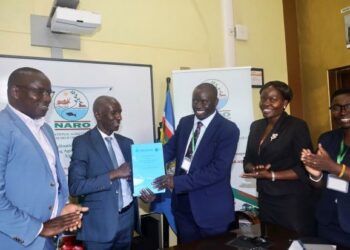At least 3,000 vulnerable in and out-of-school girls in Kampala will receive support through mentorship, linkages to essential social services and a cash transfer to enable them to transition safely into adulthood, thanks to the Government of Belgium.
According to the press statement dated 22nd march 2022,seen by watchdog, the initiatives will be implemented through a financial contribution of 16 billion Shillings that has been extended to UNICEF, in support of its ongoing Girls Empowering Girls (GEG) social protection programme implemented in partnership with Kampala Capital City Authority in the five divisions of Kampala.
The Girls Empowering Girls (GEG) programme launched in 2019, is the first programme providing social protection to adolescent girls in Uganda and represents an important milestone in the government’s efforts to achieve comprehensive social protection that is gender and age-sensitive. The programme is also aligned with the Government of Uganda’s Vision 2040, National Development Plan III, and the National Social Protection Policy.
In Uganda, adolescent girls living in urban areas bear the burdens of poverty and exclusion, while remaining vulnerable to exploitation and abuse. Worse still, the COVID-19 pandemic has exacerbated deprivations while posing new challenges for children and young people. They, in particular, are vulnerable to a host of challenges, including teenage pregnancies, which contribute to school dropouts and reduce income-generating opportunities.
“With our support, Belgium aims to demonstrate the impact of innovative financing modalities such as cash assistance in order to help inform the establishment of social protection mechanisms in Uganda,” said H.E Rudi Veestraeten, Ambassador of Belgium in Uganda and South-Sudan.
Indeed, global evidence has shown that social protection programmes that include cash transfers have had a positive impact on vulnerable children and young people. Such programmes require concerted efforts by all stakeholders, under the leadership of the government, to ensure they are well planned and effectively rolled out.
Like many developing countries, Uganda still faces challenges that require efforts to safeguard the well-being of many women and children in the country. According to World Bank (2020), the COVID-19 pandemic has unequivocally demonstrated the strategic role of social protection. However, as of July 2021, effective social protection coverage was estimated at 2.9 per cent, with the government spending only an average of 0.25 per cent of GDP on social protection, on average.
“As stakeholders, we have a duty to ensure that all children enjoy their rights as enshrined in the Convention on the Rights of the Child, including the right to protection,” Dr Munir Safieldin, UNICEF Representative in Uganda, noted.
“With the financial contribution from the Belgian Government, we will work with the Government of Uganda, through Kampala Capital City Authority (KCCA) to scale up the GEG programme from the current 1,500 to 3,000 in and out-of-school adolescent girls. We are confident this unique intervention will keep growing and help sustain demand for critical services by young people in Kampala,” he added.
The programme will be managed by Kampala Capital City Authority (KCCA) and implemented by two civil society partners.
Do you have a story in your community or an opinion to share with us: Email us at editorial@watchdoguganda.com













